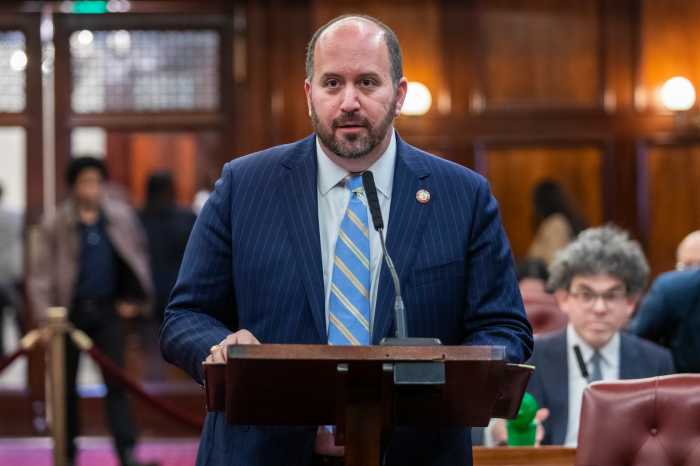Congresswoman Grace Meng has introduced the Mental Health Workforce and Language Access Act to ensure that community health centers have the resources they need to provide mental health services and increase language access for those who need it.
According to Meng, the legislation, which was introduced on Nov. 9, is a “must pass” in order for community health centers to have the ability to hire mental health professionals so that language barriers are not an obstacle for people to seek emotional well-being.
“The COVID-19 pandemic has taken a toll on the mental health of so many of my constituents in New York and individuals across the country, escalating the demand for mental health professionals,” Meng said. “The fear of coronavirus-related hate crimes against many communities — such as the Asian American community — has only underscored this urgent need for assistance. But for those who may not possess English language proficiency, help is often out of reach. This lack of access is unacceptable and must change.”
According to the Kaiser Family Foundation, about four in 10 adults in the U.S. have reported anxiety or depressive disorder symptoms — up from one in 10 adults who reported these symptoms in 2019. Community health centers are impacted by this, as one in 12 people across the country rely on them for care.
The Mental Health Workforce and Language Access Act would address this by establishing a four-year pilot program to provide additional benefits to mental health professionals who commit to serving in specific Federally Qualified Health Centers, as well as seek qualified mental health professionals to be placed in those centers.
The pilot would be unique in that it seeks to match mental health professionals with community health centers, preferably at which at least 20% of the patients are best served in a language other than English.
Mental health professionals who participate in the program would receive additional annual loan repayment compensation, with even greater loan repayment compensation available to those who are fluent in a language other than English that is needed by the health center they commit to serving.
The bill would also establish a new grant program that would provide federal grants to community health centers to help them recruit, hire and employ qualified mental health professionals who are fluent in a language other than English. Any community health center would be eligible to apply, with preference given to centers at which at least 20% of patients are best served in a language other than English.
According to Meng, the grant would help community health centers across the country hire mental health clinicians, as many aren’t able to offer competitive salaries compared to private hospitals.
The new legislation has received the support of many health organizations, such as the Asian American Psychological Association and the Charles B. Wang Community Health Center.
“Given that 80% of the individuals and families who turn to us for their primary healthcare and mental health needs are better served in a language other than English, improving language access is key to serving them effectively,” said Kaushal Challa, chief executive officer of the Charles B. Wang Community Health Center, which operates a facility in Flushing.
The bill currently has 23 co-sponsors.
“Our nation’s community health centers are struggling to hire mental health professionals who speak their community’s language or understand their culture,” Meng said. “Our communities need these life-saving services.”


































